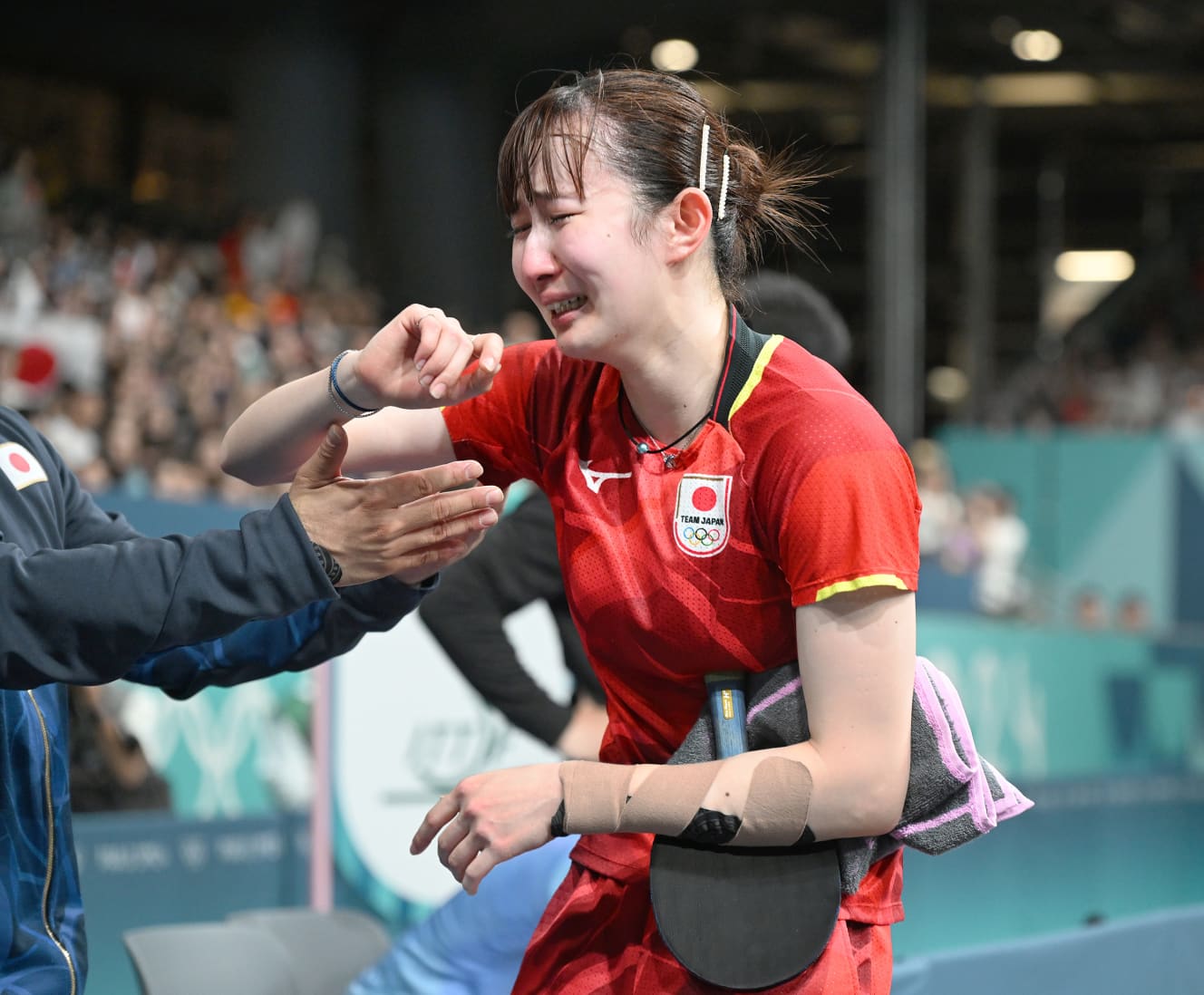Hina Hayata won the bronze medal in tears with her pride of being a queen.
Hina Hayata injured her left wrist, her dominant arm, and was forced to compete in the third-place match after injecting painkillers. Three years after the Tokyo Olympics, in which she was a reserve, she reached the podium after a long and arduous journey.

Game 6, 3-2. Hayata took the lead with a sharp forehand. The match point came when Hina Hayata (24) hit a powerful serve that her opponent was unable to return. At the moment the victory was decided, the venue was filled with cheers. Crying, Hina Hayata leaned against the ping-pong table and did not get up for a while.
On August 3, Hayata won the bronze medal in the third-place match of the women’s singles table tennis tournament. Three years after the Tokyo Games, where she participated as a reserve, Hayata returned to the Olympics as an absolute ace and cried tears of joy. For this happy moment, she had overcome a great ordeal.
I didn’t think God would tease me at such a timing.”
In the quarterfinal match two days earlier, Hayata injured her left wrist, her dominant hand. She was told that it would be two to three weeks before the pain would be gone, and she was in danger of having to withdraw from the tournament.
She said, “It’s not as if I can experience this stage again four years from now. I wanted to do as much as I could because I had decided to finish.
Just before entering the match for the third-place game, Hayata said that he was only using 20-30% of his normal strength. 5 minutes before the match, the doctor gave him a painkiller, and he was ready to play. Hiroko Fujii, a former member of Japan’s national team who provided commentary for the live TV broadcast, recalled the match in which he was in a less-than-perfect condition.
She said, “When you have a forearm injury, it is the backhand that is affected the most. If you hit the ball with a suppressed wrist twist to endure the pain, you will not be able to swing the racket, and you will end up hitting the ball with less power, such as ‘just returning it’ or ‘just matching it. In the semifinals, held the day after he injured his arm, he was unable to swing his backhand at all and was on the defensive. I also had more chances to hit Hayata’s signature forehand drive, which led to more points.”
Chieko Ishida, who coached Hayata from the age of four to eighth grade in her hometown of Kitakyushu, was pleased, saying, “This was the best match I have ever seen.
I have taught Hina well on the forehand,” she said. In this match, she was injured and couldn’t swing her backhand, so she had to go around and hit with her forehand. If you look at just the forehand, it’s the best match I’ve ever played. Hina is not a genius-type player, and she has grown so much thanks to her own efforts. When I was a kid, my mom would pick me up in the car after lessons, and I would always eat lunch and check my practice videos for the 30 minutes it took to get home. He was still in elementary school at the time, but I think he thought about how he was going to use that kind of time.
The goal of defeating China has yet to be achieved. Hayata’s days of challenge and hard work will continue.
From the August 23 and 30, 2024 issue of “FRIDAY
PHOTO: JMPA